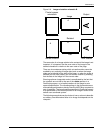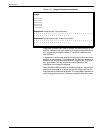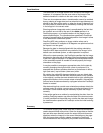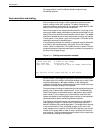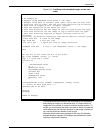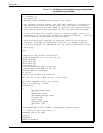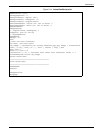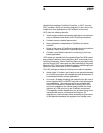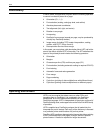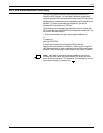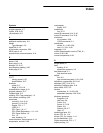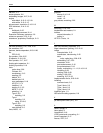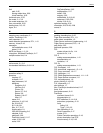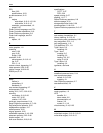
XEROX DOCUPRINT NPS GUIDE TO USING PAGE DESCRIPTION LANGUAGES 3-1
3. 3VIPP
Variable Data Intelligent PostScript PrintWare, or VIPP, (formerly
XGF) provides a facility for the easy integration of data, forms, and
images from host applications to the PostScript environment.
VIPP offers the following benefits:
• Allows imaging and data processing applications to produce an
easy-to-implement data stream that is PostScript-compliant.
• Provides access to optimal performance.
• Keeps applications independent of PostScript and printer
evolution.
• Brings all the power of PostScript to production printing without
requiring a heavy investment in PostScript training.
• Provides a cost effective solution for continuing to print host-
based applications.
VIPP software is installed with the standard DocuPrint NPS system
and provides PostScript macro definitions (XGF commands) to the
PostScript interpreter. Normal PostScript jobs print as always, while
jobs that include VIPP commands can take advantage of the power
offered by VIPP. Refer to the Guide to Configuring and Managing the
System for more information on VIPP installation.
The VIPP package provides the following two modes of operation:
• Native mode—Provides a set of easy-to-use operators bundled
as a PostScript program that enables the quick development of
host-based production printing applications.
• Line mode—Enables formatting and extensive print job control
of host-supplied ASCII or EBCDIC data with minimal change for
host applications. Line mode commands are modeled after
Xerox LCDS commands, coupled with a growing list of third
party tools available on the market today, enables the simple
migration of LCDS print jobs to the PostScript environment.
This capability is often needed when you are downsizing from a
centralized IM shop to a client/server architecture. An
adaptation to Line mode also allows formatting and job control
of field delimited database files supplied from multiple hosts.



